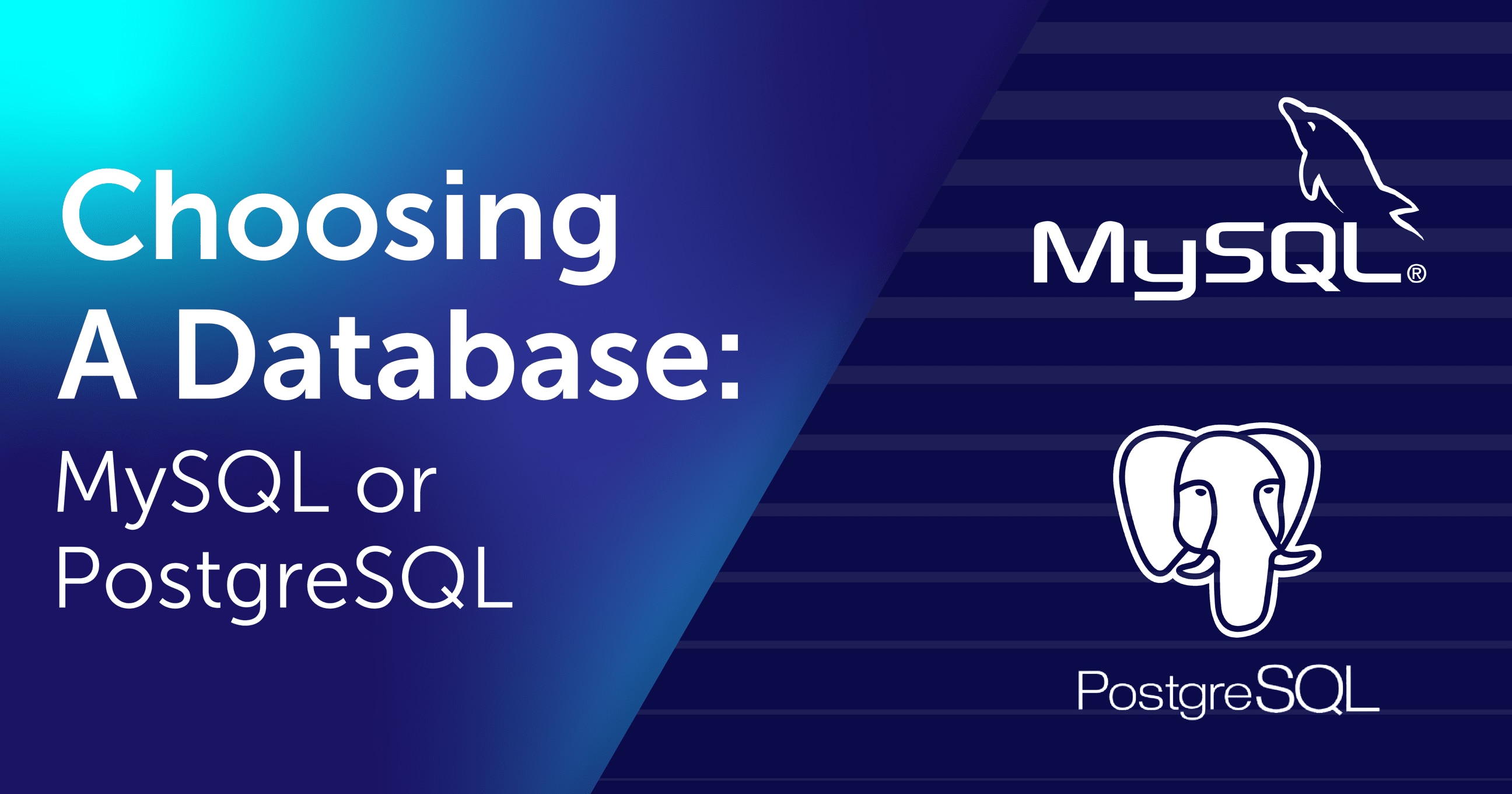Suppose you’re in the process of planning or developing your own application that needs to store and query data easily. In that case, your best option is to use a SQL relational database as part of your solution. MySQL and PostgreSQL are both leading open source databases, but it can be hard to see the difference at first glance. To help you choose the right one, we’re taking a closer look at the optimized tasks for each database.
Simple vs. Complex Queries
MySQL has a reputation for being straightforward and intuitive. It’s one of the main reasons MySQL is so popular, as it makes it easy to create a database as part of common applications like building a website or a directory. On the other hand, the no-frills simplicity of MySQL can be an issue when you need to support more complex queries. If you need to optimize your queries, PostgreSQL is more feature-rich. Additional capabilities may equate to an extra time commitment to learn about the database solution, but it depends on your application.
These two solutions also take different approaches to the SQL standard. MySQL supports all basic queries without adhering too closely to the official SQL syntax. PostgreSQL, on the other hand, more rigidly aligns to the standard. That means if you’re already an SQL expert and don’t want to deal with deviations from the syntax or are considering porting your application to other SQL platforms, PostgreSQL is the better choice.
Experience vs. Ease of Use
If you’re just getting started with creating and managing your database and haven’t considered the portability of your services supporting your application, MySQL is a good choice. Both databases are built around SQL so there only are minor differences in terms of how queries need to be structured to achieve the desired result. For that reason, MySQL is considered more intuitive and forgiving for less experienced developers to create simple queries. For instance, PostgreSQL queries are case sensitive, whereas, in MySQL you don’t have to worry about case.
Overall Performance
It’s important to consider whether your database needs to support or be optimized for read or write-heavy operations. MySQL is designed to provide high performance for database read operations, whereas PostgreSQL is better for write-heavy and concurrent read-write operations.
PostgreSQL is highly scalable, and its support for advanced queries has given this database a reputation with enterprise solutions. PostgreSQL parallelizes database updates and offers additional industrial-strength features that appeal to business-ready customers. PostgreSQL is optimized for write and concurrent read-write operations. Its syntax is more difficult to master but includes some advanced querying capabilities. Because it adheres more strictly to the standard, the code you write for PostgreSQL is easier to port to other SQL variants.
Considering a Managed Database Offering
You can incorporate each of these options as part of your application’s development stack. It might take some hands-on-the-keyboard time to find a SQL database that provides the right mix of ease to use, and use case performance needed. After you’ve selected between MySQL, PostgreSQL, or another database option, now it’s time to maintain it.
A Managed Database solution could be an option, allowing you to quickly deploy a new database like MySQL or PostgreSQL and defer management tasks like configurations, managing high availability, disaster recovery, backups, and data replication.Learn more about Linode’s Managed Database solution, including how to join our Green Light beta community to learn about future databases before they are released.







Comments (2)
MySQL seems like the better choice for entry-level platforms. Less hassle, and larger availability of tutorials.
MariaDB, a fork of MySQL, is included in most Linux distributions. PostgreSQL has more mature Geographic Information System (GIS) functions using the PostGIS plugin.